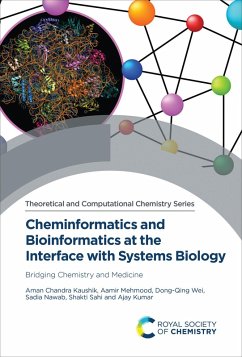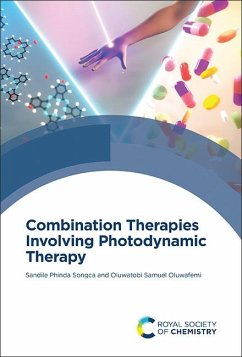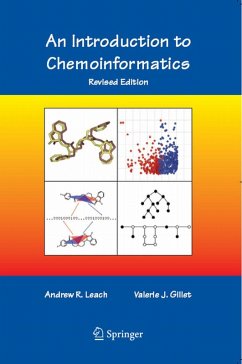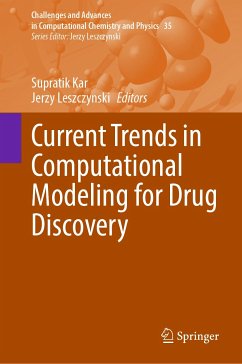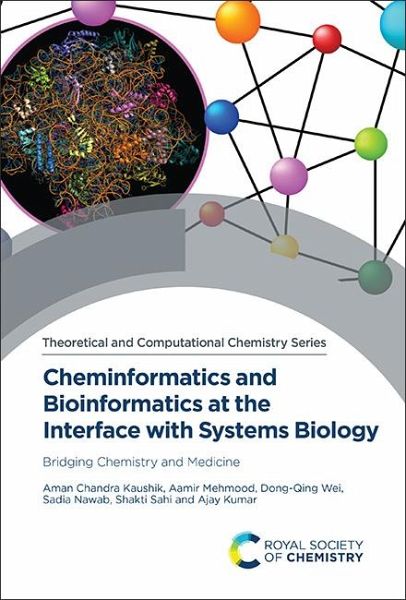
Cheminformatics and Bioinformatics at the Interface with Systems Biology (eBook, PDF)
Bridging Chemistry and Medicine
Versandkostenfrei!
Sofort per Download lieferbar
162,95 €
inkl. MwSt.
Weitere Ausgaben:

PAYBACK Punkte
81 °P sammeln!
The cost of drug development is increasing, and investment returns are decreasing. The number of drugs approved by FDA is in decline in terms of the number of new molecular entities (NMEs). Amongst the reasons noted for this are the adverse side effects and reduced efficiency of many of the potential compounds. This is a problem both for the pharmaceutical industry and for those suffering from diseases for which there are no or few available treatments.Advances in computational chemistry, computer science, structural biology and molecular biology have all contributed to improved drug design st...
The cost of drug development is increasing, and investment returns are decreasing. The number of drugs approved by FDA is in decline in terms of the number of new molecular entities (NMEs). Amongst the reasons noted for this are the adverse side effects and reduced efficiency of many of the potential compounds. This is a problem both for the pharmaceutical industry and for those suffering from diseases for which there are no or few available treatments.
Advances in computational chemistry, computer science, structural biology and molecular biology have all contributed to improved drug design strategies and reduced the time taken for drug discovery. By interfacing cheminformatics and bioinformatics with systems biology we can create a powerful tool for understanding the mechanisms of patho-physiological systems and identifying lead molecules for various diseases. This integration of drug design approaches can also play a crucial role in the prediction and rationalization of drug effects and side effects, improving safety and efficacy and leading to better approval rates.
Addressing the lack of knowledge on the fundamental aspects of the various computational tools for drug discovery, this book is a compilation of recent bioinformatics and cheminformatics approaches, and their integration with systems biology. Written primarily for researchers and academics in chem- and bioinformatics, it may also be a useful resource for advanced-level students.
Advances in computational chemistry, computer science, structural biology and molecular biology have all contributed to improved drug design strategies and reduced the time taken for drug discovery. By interfacing cheminformatics and bioinformatics with systems biology we can create a powerful tool for understanding the mechanisms of patho-physiological systems and identifying lead molecules for various diseases. This integration of drug design approaches can also play a crucial role in the prediction and rationalization of drug effects and side effects, improving safety and efficacy and leading to better approval rates.
Addressing the lack of knowledge on the fundamental aspects of the various computational tools for drug discovery, this book is a compilation of recent bioinformatics and cheminformatics approaches, and their integration with systems biology. Written primarily for researchers and academics in chem- and bioinformatics, it may also be a useful resource for advanced-level students.
Dieser Download kann aus rechtlichen Gründen nur mit Rechnungsadresse in A, D ausgeliefert werden.




